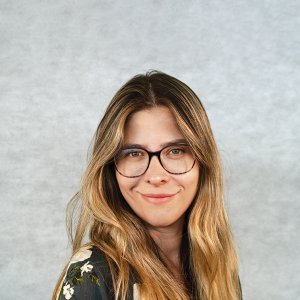Universal Access, One Step at a Time

STORY INLINE POST
Energy access is a determining factor for quality of life. In 2011, the United Nations and the World Bank launched Sustainable Energy for All to ensure universal access to modern energy services by 2030. But initiatives like this, although honorable, lack the economic sense to make them sustainable and therefore impactful, says Jonah Greenberger, co-founder of Bright, a Mexican startup that hopes to solve this dilemma.
Greenberger says that his company’s ultimate mission is to reach every corner of the world where people do not have any power source other than fuels like kerosene, and to bring electricity as a fundamental enabler of communication, entertainment and education. Although Greenberger wants to achieve universal access, he knows his company must first be profitable. “With this huge mission on our shoulders, we have to make sure to take it step by step.”
The first step, he says, is to have a strong base of customers in the high and middle-income segments, allowing the company to bring technology costs down. “It may sound counterintuitive to start with the elite to provide universal access, but we believe this is the most effective path. Many startups that want to provide clean, affordable and universal access to electricity from day one fail to apply economies of scale to technologies that are still expensive,” Greenberger says. Today, Bright is working to offer residential PV services in Mexico to DAC and T2 users and to build a software-operating system that will spread residential solar globally.
Venturing into these segments was the logical thing to do but investors were initially uncertain, Greenberger says. “For investors, uncertainty is always troubling. One of the biggest concerns when Bright started was CFE. Anything CFE did or did not do was unsettling.” Greenberger explains that investors were wary of the possibility that CFE would change those rates, which account for Bright’s entire market, affecting its business. The market’s new transparency has helped settle nerves. “We are now in a more transparent and certain market thanks to the reform's changes, making investors feel safer.”
Although Bright could be confused for a solar system installation company, it is in reality a software firm, says Greenberger. “We are building a software platform that will allow everyone in the solar ecosystem to be efficient, costeffective and to scale up operations as fast as possible.” This goes hand in hand with Bright’s commitment to increase its customer base. Software development is at Bright's core, in parallel with closing strong partners for installations. “We partner with local installers, suppliers and entrepreneurs as well as international manufacturers so they can act together with local players and jointly install solar systems. Bright’s software connects all these pieces.” This strategy increases Bright’s footprint, he continues. “Instead of just being a one-service provider, Bright is a full-service provider that integrates all these services to install an efficient and customer-oriented solar system. Although Bright is a small company, it has a huge footprint that includes thousands of people working across Mexico.”
Because Sillicon Valley is the world’s major hub for software development, it makes sense that an innovative company like Bright would have its software development operations in that location. Greenberger would like to bring these operations to Mexico, but the task remains challenging. He is quick to point out that difficulty does not mean a lack of human talent. “Human talent definitely exists in Mexico, but the lack of opportunities to work in companies before graduating and to develop significant real-world experience is missing. Students in Mexico do not have the opportunity to walk down the street and seek part-time jobs at global companies like Facebook, Google or Twitter like students in Silicon Valley do.”
Committed to cultivating such human talent, Bright is interested in developing the industrial ecosystem from its own roots. “We are working to provide students the opportunities to develop finance and sales skills together with programming skills that can used in international environments.” He also calls on other players to join in this effort to benefit the country’s competitiveness. “In a globalized world, these opportunities are strong assets for companies and for the country. High schools and universities should join in this effort.”























